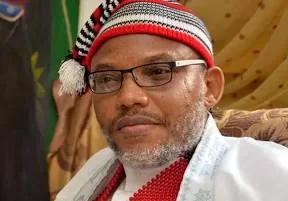
IPOB CAUTIONS SOUTH-EAST GOVS AGAINST GRAZING RESERVES FOR MIYETTI ALLAH
The Indigenous People of Biafra, IPOB, on Saturday warned South-East governors against setting the region on fire by allocating lands for grazing reserves to the Miyetti Allah Cattle Breeders Association of Nigeria, MACBAN.
Emma Powerful, the spokesman of IPOB, in a statement on Saturday, cautioned the governors against mortgaging the safety of the people of the region.
A statement by Powerful reads: “The Noble family and movement of the Indigenous People of Biafra (IPOB) led by Mazi Nnamdi Okwu Kanu wish to caution the Eastern Governors to shun the recent demand from Miyetti Allah for the governors to allocate grazing reserves in their respective states to them. No governor should mortgage safety and security by allocating land for RUGA in disguise.
“The Indigenous People of Biafra (IPOB) is asking the Southern and Middle Belt Governors to reject the demand for grazing reserves by the Fulani Miyetti Allah organization in Nigeria.“IPOB will resist any form of land grabbing, change of demography, and conquest ideology in any disguise. All we are saying is that there shall be no grazing reserve for Miyetti Allah in Biafra Land.”
 Premium News
Premium News